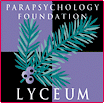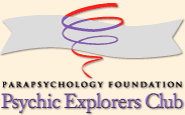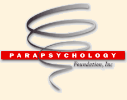 |
 |
|
PF Lyceum Blog #6, December 15th, 2005 Carlos S. Alvarado, Ph.D. In a previous commentary I wrote briefly about aspects of the history of parapsychology (click here). In this blog, I would like to offer some thoughts about the importance of having a general knowledge about the past parapsychological literature. Understanding our origins is a task that does not need to be justified in practical terms. Our past is part of us and its patterns bring meaning and self-understanding to our life and work. Similarly, a knowledge of the past literature of the field in which we are interested can be very useful in different ways. For one, it can help us to understand the development of parapsychology. One example is the evaluation of the impact interest in the issue of survival of bodily death has had on the development of parapsychology. The survival issue inspired the early members of the Society for Psychical Research to study apparitions and mediums, and influenced J. B. Rhine to develop his well-known experimental approach to ESP. (For a more detailed discussion click here). The concept of survival of death has also influenced later conceptual and methodological developments in the field. A particular example of this is the influence of mental mediumship on the development of methodology such as ESP testing techniques. The old literature can also be invaluable to teach us about the roots of the discipline and about the arguments used to maintain a variety of conceptual perspectives that we still find useful. Among these are: the importance of the subconscious mind for psychic phenomena, and the idea that ESP and other phenomena are indicative of nonphysicality and/or mind-body independence. It is customary for anyone who enters a new field or specialty to become acquainted with past developments before he or she embarks on their own work. But it is also common, unfortunately, for some students and other newcomers to parapsychology to have less than a good grasp on the past literature. This is a shame, not only because it may lead them to “reinvent the wheel”, raising arguments or designing research projects as if they were doing something new. But much worse, is that such a lack of knowledge may interfere with the quality of the work they ultimately do. It is one thing to try to be creative, and another — a questionable practice — to cultivate ignorance in the belief that one's own creativity will work better without the interference of previous information on the topic. I, for one, believe that an individual's cleverness and creative potential will have a much better chance of success when it is founded on previous knowledge. After all, science is, to a great extent, a cumulative enterprise. To improve parapsychology by extending past and current work, or to do something that will break completely with previous assumptions, the researcher needs a context. On a practical level, researchers can learn much about artifacts and other issues related to their current work from the old literature. This is the case, for example, of issues in the ESP testing literature. Other practical benefits of having first-hand knowledge of the old literature include having the necessary information to:
From the point of view of those who work in parapsychology, having a historical perspective is one way of enlarging and grounding our views. The better informed we are, the more opportunities we have to understand what parapsychology is all about today, and to conceptualize our own roles as scholars or as scientists in the wider framework of the field. Going through our Catalog of Bibliographies on the PF’s main website and through the Bibliographies and Links available on this site is a good way to start gaining familiarity with the field. An upcoming Blog will give some more specific advice on how to become “literate” in parapsychology. Note: We wish to thank the Journal of the Society for Psychical Research for permission to reproduce the article referenced in the list above. Click here for Past Blogs |
 |

|
 www. parapsychology. org |
||